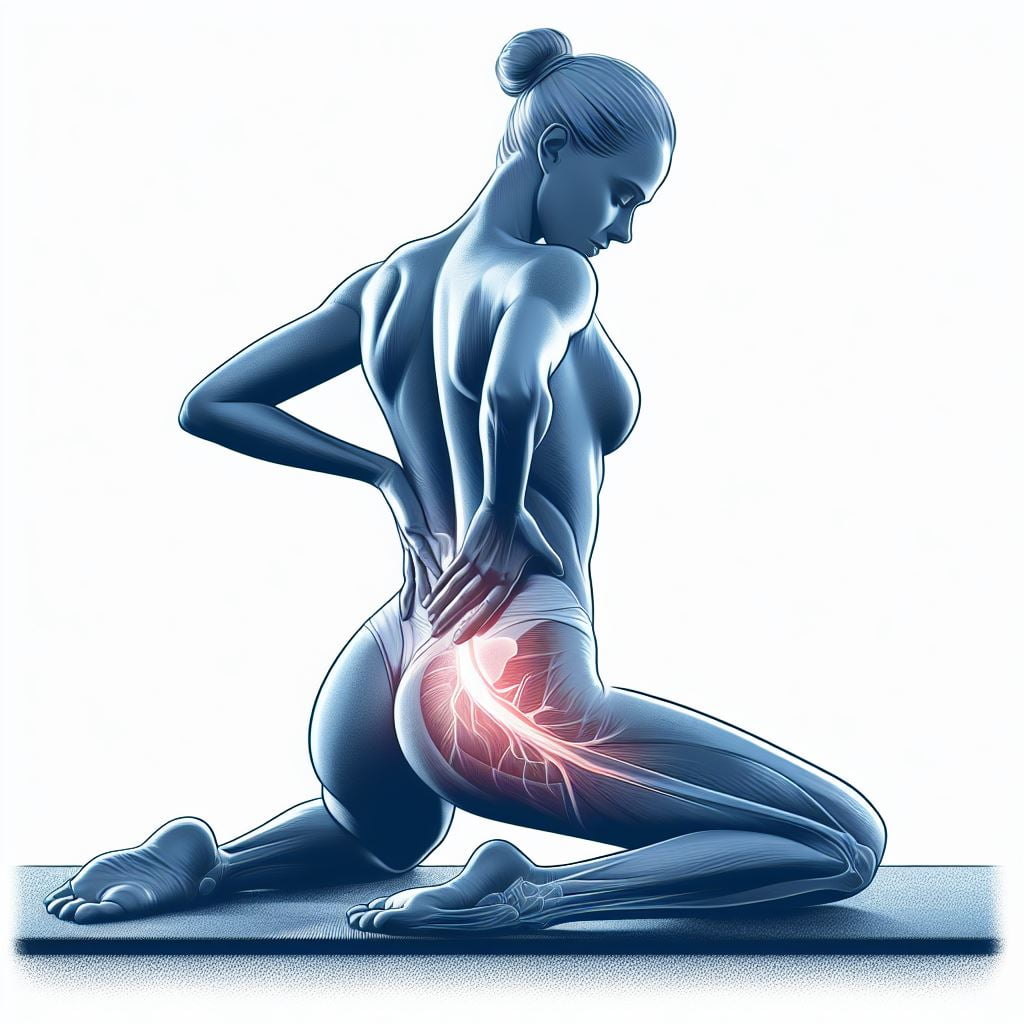Do you suffer from pain, stress, or poor health? If so, you might want to consider getting a deep tissue massage.
A deep tissue massage is a type of massage therapy that applies firm pressure and slow strokes to reach deeper layers of muscle and connective tissue. It can help with various conditions and issues, such as chronic low back pain, sports injuries, high blood pressure, and mental health problems.
In this blog post, you will learn about the main benefits of deep tissue massage for men. You will also get some tips on how to prepare for, recover from, and maintain the results of a deep tissue massage session.
Pain Relief and Injury Recovery

One of the main benefits of deep tissue massage for men is that it can help with pain relief and injury recovery. Whether you have chronic lower back pain, sports injuries, or pregnancy-related lower back pain, deep tissue massage can reduce your discomfort and speed up your healing process.
How does it work?
It helps to break down adhesions and collagen fibers that cause pain and inflammation. It also improves blood circulation and oxygen delivery to the affected areas, which promotes healing and reduces swelling.
What does the research say?
Several studies have shown the effectiveness of deep tissue massage for pain relief and injury recovery. Here are some examples:
- A 2014 study involving 59 participants found that deep tissue massage helped to reduce pain in people with chronic low back pain.
- A 2012 study involving 28 participants found that deep tissue massage improved the range of motion and reduced pain in people with sports injuries.
- A 2016 case study reported that deep tissue massage reduced lower back pain in a 28-year-old pregnant person.
What are some tips?
If you want to get the most out of your deep tissue massage session, here are some tips to follow:
- Drink plenty of water before and after your massage to stay hydrated and flush out toxins.
- Stretch gently before and after your massage to loosen up your muscles and prevent soreness.
- Use a heating pad or a hot bath to soothe your muscles and relax your mind.
- Avoid strenuous activities or heavy lifting for at least 24 hours after your massage to allow your body to recover.
- Consult your doctor before having a deep tissue massage if you have any medical conditions or concerns.
Blood Pressure and Heart Health

Another benefit of deep tissue massage for men is that it can improve blood pressure and heart health. High blood pressure, or hypertension, is a common condition that affects about one in three adults in the United States. It can increase the risk of heart disease, stroke, and kidney failure. Deep tissue massage can help lower blood pressure and heart rate by improving blood circulation and reducing stress hormones.
How does it work?
It helps to relax the blood vessels and improve blood flow throughout the body. It also stimulates the parasympathetic nervous system, which is responsible for calming the body and lowering the heart rate. Additionally, deep tissue massage can reduce the levels of cortisol, a stress hormone that can raise blood pressure and cause inflammation.
What does the research say?
Several studies have shown the benefits of deep tissue massage for blood pressure and heart health. Here are some examples:
- A 2014 study involving 263 volunteers with an average age of 48.5 found that deep tissue massage had positive effects on systolic, diastolic, and mean arterial blood pressure readings in adults with pain and high blood pressure symptoms. The study reported that systolic blood pressure was on average 10 mm/Hg lower, while diastolic blood pressure dropped by an average of 5 mm/Hg after treatments lasting between 45-60 minutes.
- A 2018 review of 17 studies involving 786 participants found that sports massage, which includes deep tissue massage techniques, may reduce heart rate and high blood pressure. The review suggested that sports massage can lower heart rate by an average of 8 beats per minute and systolic blood pressure by an average of 6 mm/Hg.
- A 2017 study involving 30 participants with hypertension found that deep tissue massage combined with aromatherapy significantly reduced both systolic and diastolic blood pressure compared to a control group. The study also found that deep tissue massage improved mood and quality of life in the participants.
What are some tips?
If you want to get the most out of your deep tissue massage session, here are some tips to follow:
- Check with your doctor before having a deep tissue massage if you have any heart or circulatory conditions, such as arrhythmia, angina, or a history of blood clots. Deep tissue massage may not be suitable for everyone, as it can dislodge existing blood clots or cause bleeding in some cases.
- Monitor your blood pressure before and after your massage to see how it changes. You can use a home blood pressure monitor or visit a pharmacy or clinic that offers this service.
- Avoid eating a heavy meal or drinking alcohol before your massage, as these can affect your blood pressure and heart rate.
- Drink plenty of water after your massage to stay hydrated and flush out toxins.
- Follow a healthy lifestyle that includes regular exercise, a balanced diet, and stress management to maintain your blood pressure and heart health.
Mental Health and Well-being

Another benefit of deep tissue massage for men is that it can improve mental health and well-being. Stress, anxiety, and depression are common mental health issues that affect many people, especially in today’s fast-paced and demanding world. Deep tissue massage can help enhance mood, relaxation, and coping skills by stimulating the release of serotonin and endorphins.
How does it work?
Deep tissue massage works by applying firm pressure and slow strokes to reach deeper layers of muscle and connective tissue. This helps to release physical and emotional blockages, providing relief from chronic stress and promoting mental well-being. It also creates a sense of connection and trust with the massage therapist, which can foster a positive therapeutic relationship.
What does the research say?
Several studies have shown the benefits of deep tissue massage for mental health and well-being. Here are some examples:
- A 2010 study involving 53 participants found that deep tissue massage reduced anxiety levels and increased positive affect in people with generalized anxiety disorder.
- A 2014 study involving 40 participants found that deep tissue massage improved depressive symptoms and quality of life in people with major depressive disorder.
- A 2016 study involving 60 participants found that deep tissue massage improved lung function, dyspnea, anxiety, and depression in people with chronic obstructive pulmonary disease3.
What are some tips?
If you want to get the most out of your deep tissue massage session, here are some tips to follow:
- Communicate with your massage therapist about your preferences, needs, and expectations. Let them know if you have any areas of pain or discomfort, or if you want more or less pressure.
- Breathe deeply and relax during your massage. Focus on the sensations in your body and the present moment. Avoid thinking about your worries or problems.
- After your massage, take some time to rest and reflect on your experience. Notice how you feel physically and emotionally. Write down any insights or feelings that come up.
- Incorporate deep tissue massage into a regular self-care routine. Schedule a massage at least once a month or as often as you need to maintain your mental health and well-being.
Mental Health and Well-being
Another benefit of deep tissue massage for men is that it can improve mental health and well-being. Stress, anxiety, and depression are common mental health issues that affect many people, especially in today’s fast-paced and demanding world. Deep tissue massage can help enhance mood, relaxation, and coping skills by stimulating the release of serotonin and endorphins.
How does it work?
Deep tissue massage helps to release physical and emotional blockages, providing relief from chronic stress and promoting mental well-being. It also creates a sense of connection and trust with the massage therapist, which can foster a positive therapeutic relationship.
What does the research say?
Several studies have shown the benefits of deep tissue massage for mental health and well-being. Here are some examples:
- A 2010 study involving 53 participants found that deep tissue massage reduced anxiety levels and increased positive affect in people with generalized anxiety disorder.
- A 2014 study involving 40 participants found that deep tissue massage improved depressive symptoms and quality of life in people with major depressive disorder.
- A 2016 study involving 60 participants found that deep tissue massage improved lung function, dyspnea, anxiety, and depression in people with chronic obstructive pulmonary disease.
What are some tips?
If you want to get the most out of your deep tissue massage session, here are some tips to follow:
- Communicate with your massage therapist about your preferences, needs, and expectations. Let them know if you have any areas of pain or discomfort, or if you want more or less pressure.
- Breathe deeply and relax during your massage. Focus on the sensations in your body and the present moment. Avoid thinking about your worries or problems.
- After your massage, take some time to rest and reflect on your experience. Notice how you feel physically and emotionally. Write down any insights or feelings that come up.
- Incorporate deep tissue massage into a regular self-care routine. Schedule a massage at least once a month or as often as you need to maintain your mental health and well-being.
FAQ
How long does a deep tissue massage session last?
A typical deep tissue massage session lasts between 60 and 90 minutes, depending on your needs and preferences. Some people may need more time to work on specific areas, while others may prefer shorter sessions to avoid soreness.
How often should I get a deep tissue massage?
The frequency of deep tissue massage depends on your goals, condition, and response to the therapy. Some people may benefit from weekly or biweekly sessions, while others may only need it once a month or less. You should consult your massage therapist and your doctor to find the best schedule for you.
What should I do before and after a deep tissue massage?
Before a deep tissue massage, you should drink plenty of water, avoid eating a heavy meal, and wear comfortable clothing. You should also inform your massage therapist of any medical issues or allergies you have. After a deep tissue massage, you should drink more water, apply ice or heat to sore areas, and avoid strenuous activities for at least 24 hours. You should also follow any instructions or recommendations from your massage therapist.
How much does a deep tissue massage cost?
The cost of a deep tissue massage varies depending on the location, experience, and qualifications of the massage therapist, as well as the length and type of the session. According to Healthline, the average cost of a 60-minute deep tissue massage in the United States is $90, but it can range from $50 to $250 or more. You may also need to pay extra for tips, taxes, or add-ons. Some health insurance plans may cover part or all of the cost of a deep tissue massage if it is prescribed by a doctor for a medical condition. You should check with your insurance provider and your massage therapist before booking a session.
Conclusion
Deep tissue massage is a powerful and effective way to improve your physical and mental health. It can help you with various conditions, such as pain, injury, blood pressure, heart health, stress, anxiety, depression, and chronic lung disease.
However, before you book a session, make sure you consult your doctor if you have any medical concerns.
Also, look for a qualified and experienced massage therapist who can tailor the massage to your needs and preferences. You can find some resources and links below to help you with that.
Remember, deep tissue massage is not just a luxury, but a necessity for your well-being.
Sources:
- Deep Tissue Massage: Benefits, What to Expect, and Side Effects. https://www.healthline.com/health/deep-tissue-massage.
- Deep tissue massage: Benefits, risks, and what to expect. https://www.medicalnewstoday.com/articles/deep-tissue-massage-benefits.
- Deep Tissue Massage: Why It’s Done, Benefits, What to Expect – Healthgrades. https://www.healthgrades.com/right-care/bones-joints-and-muscles/deep-tissue-massage.
- Deep Tissue Massage: What Is It, Benefits, And Everything You … – Soothe. https://www.soothe.com/articles/what-is-deep-tissue-massage/.
- The Power of Deep Tissue Massage: Surprising Ways It Can Heal Your Body. https://pressmodernmassage.com/blogs/going-deep/what-is-a-deep-tissue-massage.





















